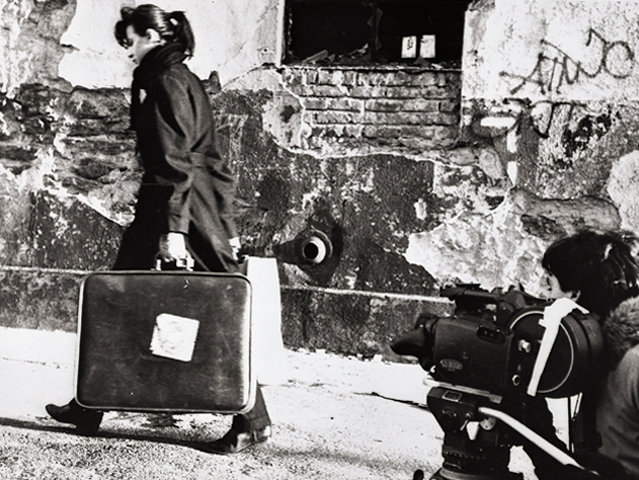They wanted to make films that were shorter, punchier, more in your face. Films that shouted, "I am here."
While No Wave bands rocked the clubs in Downtown Manhattan at the end of the '70s and dawn of the '80s, their members and friends and fans were taking the same wide-open-minded approach to film.
The story of that revolutionary underground film scene that helped sprout the careers of Richard Kern, Jim Jarmusch, John Waters, Susan Seidelman, Vincent Gallo, John Lurie, Ann Magnuson and Steve Buscemi, among others, is fodder for "Blank City."
The 94-minute documentary, directed by Celine Danhier, screens for free at UWM's Union Theatre, Thursday, Sept. 15 at 7 p.m.
Although the film is a pretty conventional look at an anything but conventional period in American film and music and art, the subject matter itself is so provocative that it barely matters that "Blank City" uses a simply, "interview-footage-interview-footage" approach.
The clips are so varied and so interesting that you want to see more. And hearing the stories that Jarmusch and the others tell about their bands, their friends – like struggling artist Jean-Michel Basquiat – and what the Lower East Side was like in those days is fascinating. We're reminded that there was a time in the not-so-distant past when large swaths of the city were still littered with rubble and vacant lots.
These filmmakers say they weren't trying to make art films. They wanted to make movies with action, movies that told a story. Because those were the kinds of films people wanted to watch.
And when they screened their work at the New Cinema on St. Mark's Place, people did come. Sometimes hundreds and hundreds of people came. Wall Street was making money and art galleries were thriving.
Suddenly people like Basquiat were rich. And some of the No Wave filmmakers were making headway, too, outside the scene. Films like "Wild Style," "Stranger Than Paradise" and "Smithereens" ignited careers.
Lurie tells of how success and money changed Basquiat and some others interviewed in the film readily admit that success made them shed their values.
What's perhaps most interesting about the film is the way that we see in all the clips that New York is the star. And as "Rome 78" director James Nares admits, "The movies were somehow always about New York, even when they were about ancient Rome."
Also screening this weekend at UWM is Jean-Luc Godard's 2010 "Film Socialisme," the legendary director's first full feature on video. It screens Friday at 7 p.m., Saturday at 5 and 9 p.m. and Sunday at 3 and 7:15 p.m.
Admission is $6, $4 for UWM students and $5 for UWM faculty, staff and alumni association members.
Born in Brooklyn, N.Y., where he lived until he was 17, Bobby received his BA-Mass Communications from UWM in 1989 and has lived in Walker's Point, Bay View, Enderis Park, South Milwaukee and on the East Side.
He has published three non-fiction books in Italy – including one about an event in Milwaukee history, which was published in the U.S. in autumn 2010. Four more books, all about Milwaukee, have been published by The History Press.
With his most recent band, The Yell Leaders, Bobby released four LPs and had a songs featured in episodes of TV's "Party of Five" and "Dawson's Creek," and films in Japan, South America and the U.S. The Yell Leaders were named the best unsigned band in their region by VH-1 as part of its Rock Across America 1998 Tour. Most recently, the band contributed tracks to a UK vinyl/CD tribute to the Redskins and collaborated on a track with Italian novelist Enrico Remmert.
He's produced three installments of the "OMCD" series of local music compilations for OnMilwaukee.com and in 2007 produced a CD of Italian music and poetry.
In 2005, he was awarded the City of Asti's (Italy) Journalism Prize for his work focusing on that area. He has also won awards from the Milwaukee Press Club.
He has be heard on 88Nine Radio Milwaukee talking about his "Urban Spelunking" series of stories, in that station's most popular podcast.



